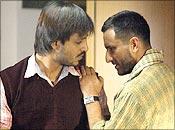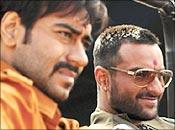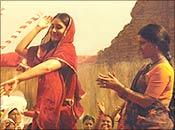They have funny accents, occasionally dress in strange outfits, and some wear turbans and grow beards, yet Indians have been able to overcome stereotypes to become the U.S.'s most successful immigrant group.
Not only are they leaving their mark in the field of technology, but also in real estate, journalism, literature, and entertainment. They run some of the most successful small businesses and lead a few of the largest corporations. Valuable lessons can be learned from their various successes.
According to the 2000 Census, the median household income of Indians was $70,708 -- far above the national median of $50,046.
An Asian-American hospitality industry advocacy group says that Indians own 50% of all economy lodging and 37% of all hotels in the U.S. AnnaLee Saxenian, a dean and professor at University of California, Berkeley, estimates that in the late 1990s, close to 10% of technology startups in Silicon Valley were headed by Indians.
You'll find Indian physicians working in almost every hospital as well as running small-town practices. Indian journalists hold senior positions at major publications, and Indian faculty have gained senior appointments at most universities. Last month, Indra Nooyi, an Indian woman, was named CEO of PepsiCo.
A modest explanation
Census data show that 81.8% of Indian immigrants arrived in the U.S. after 1980. They received no special treatment or support and faced the same discrimination and hardship that any immigrant group does. Yet, they learned to thrive in American society. Why are Indians such a model immigrant group?
In the absence of scientific research, I'll present my own reasons for why this group has achieved so much. As an Indian immigrant myself, I have had the chance to live the American dream. I started two successful technology companies and served on the boards of several others. To give back, I co-founded the Carolinas chapter of a networking group called The Indus Entrepreneurs and mentored dozens of entrepreneurs.
Last year, I joined Duke University as an executive-in-residence to share my business experience with students and research how the U.S. can maintain its global competitive advantage.
1. Education. The Census Bureau says that 63.9% of Indians over 25 hold at least a bachelor's degree, compared with the national average of 24.4%. Media reports routinely profile graduates from one Indian college -- the Indian Institute of Technology (IIT).
This is a great school, but most successful Indians I know aren't IIT graduates. Neither are the doctors, journalists, motel owners, or the majority of technology executives. Their education comes from a broad range of colleges in India and the U.S. They believe that education is the best way to rise above poverty and hardship.
2. Upbringing. For my generation, what was most socially acceptable was to become a doctor, engineer, or businessperson. Therefore, the emphasis was on either learning science or math or becoming an entrepreneur.
3. Hard work. With India's competitive and rote-based education system, children are forced to spend the majority of their time on their schooling. For better or for worse, it's work, work, and more work for anyone with access to education.
4. Determination to overcome obstacles. In a land of over a billion people with a corrupt government, weak infrastructure, and limited opportunities, it takes a lot to simply survive, let alone get ahead.
Indians learn to be resilient, battle endless obstacles, and make the most of what they have. In India, you're on your own and learn to work around the problems that the state and society create for you.
5. Entrepreneurial spirit. As corporate strategist C K Prahalad notes in his interview with BusinessWeek's Pete Engardio, amidst the poverty, hustle, and bustle of overcrowded India is a "beehive of entrepreneurialism and creativity." After observing street markets, Prahalad says that "every individual is engaged in a business of some kind -- whether it is selling single cloves of garlic, squeezing sugar cane juice for pennies a glass, or hauling TVs." This entrepreneurial sprit is something that most Indians grow up with.
6. Recognizing diversity. Indians hold many ethnic, racial, gender, and caste biases. But to succeed, they learn to overlook or adapt these biases when necessary. There are six major religions in India, and the Indian constitution recognizes 22 regional languages. Every region in the country has its own customs and character.
7. Humility. Talk to almost any immigrant, regardless of origin, and he will share stories about leaving social status behind in his home country and working his way up from the bottom of the ladder in his adopted land. It's a humbling process, but humility is an asset in entrepreneurship. You learn many valuable lessons when you start from scratch and work your way to success.
8. Family support/values. In the absence of a social safety net, the family takes on a very important role in Indian culture. Family members provide all kinds of support and guidance to those in need.
9. Financial management. Indians generally pride themselves on being fiscally conservative. Their businesses usually watch every penny and spend within their means.
10. Forming and leveraging networks. Indians immigrants found that one of the secrets to success was to learn from those who had paved the trails.
Some examples: Successful Indian technologists in Silicon Valley formed an organization called The Indus Entrepreneurs to mentor other entrepreneurs and provide a forum for networking. TiE is reputed to have helped launch hundreds of startups, some of which achieved billions in market capitalization. This was a group I turned to when I needed help.
Top Indian journalists and academics created the South Asian Journalists Association (SAJA) to provide networking and assistance to newcomers. SAJA runs journalism conferences and workshops, and provides scholarships to aspiring South-Asian student journalists.
In the entertainment industry, fledgling filmmakers formed the South Asian American Films and Arts Association (SAAFA). Their mission is the promotion of South Asian cinematic and artistic endeavors, and mentoring newcomers.
11. Giving back. The most successful entrepreneurs I know believe in giving back to the community and society that has given them so much opportunity. TiE founders invested great effort to ensure that their organization was open, inclusive, and integrated with mainstream American society. Their No. 1 rule was that their charter members would give without taking. SAJA officers work for top publications and universities, yet they volunteer their evenings and weekends to run an organization to assist newcomers.
12. Integration and acceptance. The Pew Global Attitudes Project, which conducts worldwide public opinion surveys, has shown that Indians predominantly hold favorable opinions of the U.S. When Indians immigrate to the U.S, they usually come to share the American dream and work hard to integrate.
Indians have achieved more overall business success in less time in the U.S. than any other recent immigrant group. They have shown what can be achieved by integrating themselves into U.S. society and taking advantage of all the opportunities the country offers.
 Maybe the reason the film
Maybe the reason the film  The players, and their choosing: While on beauty, it is impossible to not be mesmerised by Kareena Kapoor, who looks her best as she fittingly plays Desdemona. 'That whiter skin of hers than snow and smooth as monumental alabaster,' as the dark Moor described his bride, is positively luminous in Kareena's Dolly Mishra. Her character is one of the hardest to essay, as she goes through love and awe, fear and bewilderment, defiance to her father and submission to her man.
The players, and their choosing: While on beauty, it is impossible to not be mesmerised by Kareena Kapoor, who looks her best as she fittingly plays Desdemona. 'That whiter skin of hers than snow and smooth as monumental alabaster,' as the dark Moor described his bride, is positively luminous in Kareena's Dolly Mishra. Her character is one of the hardest to essay, as she goes through love and awe, fear and bewilderment, defiance to her father and submission to her man.  Sights and sounds: Omkara is a slow film, a poetically drawn out work that mercifully doesn't try to rush itself. The violence, while rampant, remains atmospheric -- it is there for effect, as a backdrop, to pretend that the film has pace. Cinematographer Tassaduq Hussain -- whose short films made as a film student in the US thrilled Vishal -- has framed the film deliciously, each shot neatly boxing in light, shadows and high drama. Samir Chanda's art direction is masterful, the sets evocative and realistic, exaggerated enough to be theatrical while detailed enough to be convincing.
Sights and sounds: Omkara is a slow film, a poetically drawn out work that mercifully doesn't try to rush itself. The violence, while rampant, remains atmospheric -- it is there for effect, as a backdrop, to pretend that the film has pace. Cinematographer Tassaduq Hussain -- whose short films made as a film student in the US thrilled Vishal -- has framed the film deliciously, each shot neatly boxing in light, shadows and high drama. Samir Chanda's art direction is masterful, the sets evocative and realistic, exaggerated enough to be theatrical while detailed enough to be convincing.